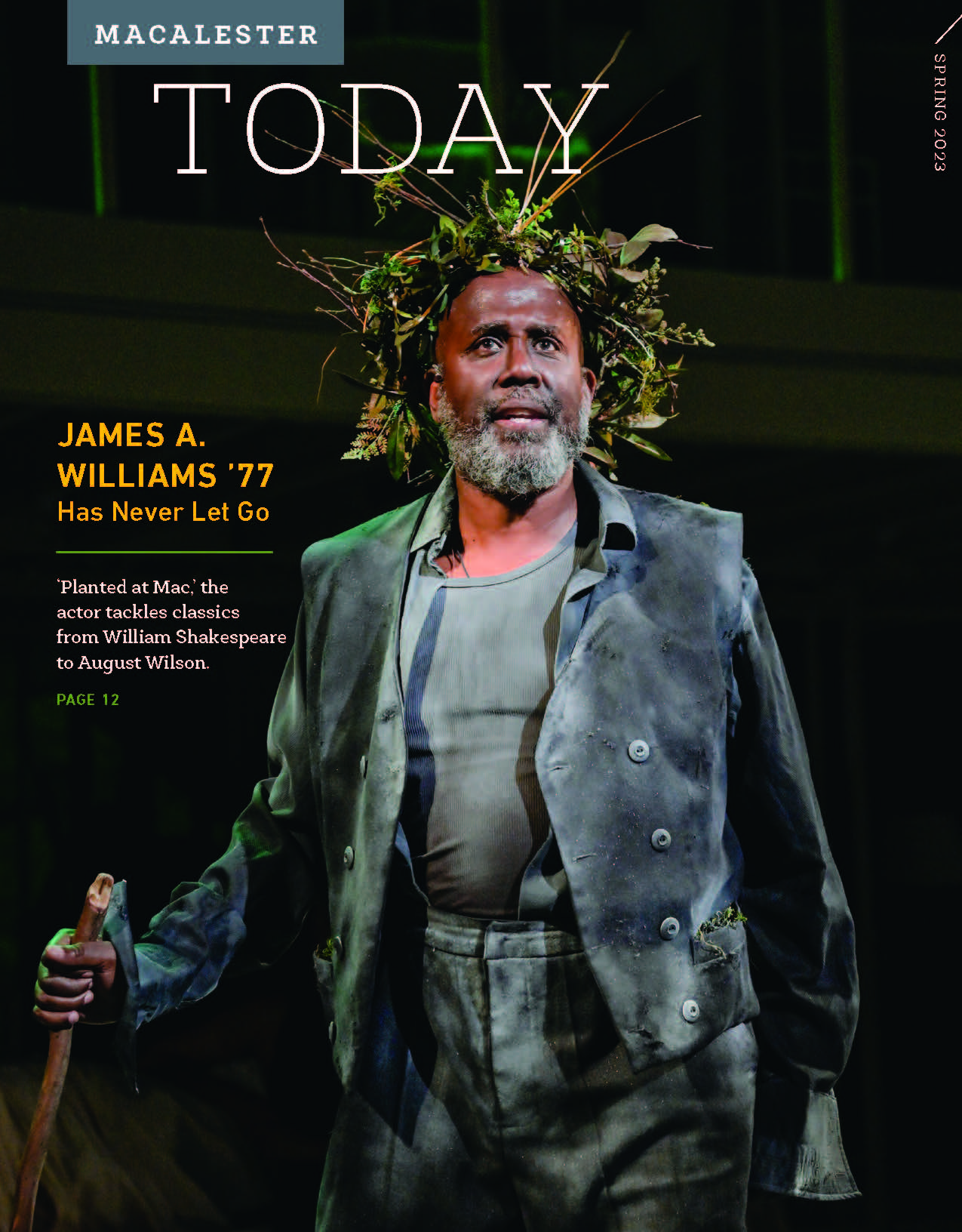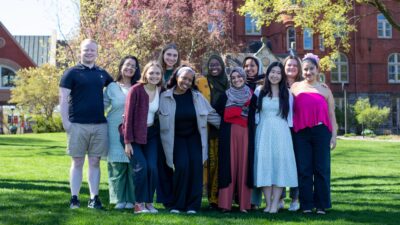
Written by Ashli Landa | Photos by John Schoolmeesters
Macalester’s Live It Fund provides funding for driven, globally-minded students who identify an opportunity or problem and propose an innovative solution. Successful proposals are awarded up to $2,000 during winter break, with an opportunity to apply for summer funding of $6,000, plus a $500 per project expense reimbursement.
We asked our January participants to tell us about their Live It Fund experience.
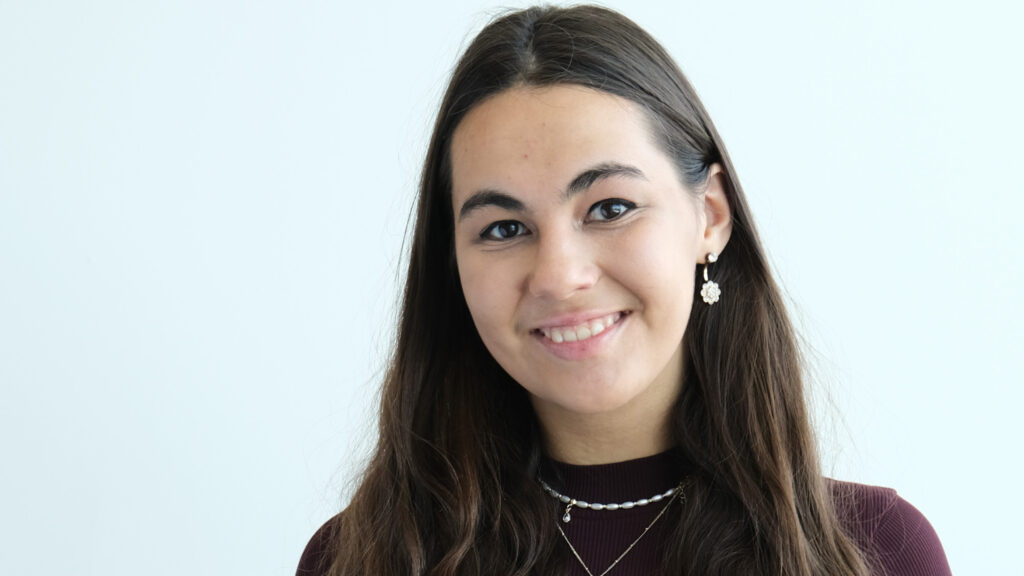
Student: Aliya Nadeeva ʼ24
“Koy”
Tell us about your project. The Turkish term “koy” translates to “cove” in English—a secluded location for ships to dock while they wait out dangerous storms. These places of refuge are what Turkey, Fethiye in particular, became for thousands of immigrants from Ukraine, Russia, and Belarus. In my project, I organized cooking events to introduce refugees and immigrants to Turkish culture.
How has the Live It Fund helped you think differently about what is possible for yourself? It was an amazing opportunity to interact with such different people and understand their needs.
What skill did you most develop during your project? Adaptability, because the situation for immigrants changes all the time and I had to adapt to legal and social changes.
When you think back to your project, what are you personally most proud of? For not giving up, when I thought that I can’t make it.
How did your project change or grow? I learned to be less scared to interact and trust people who I don’t know.
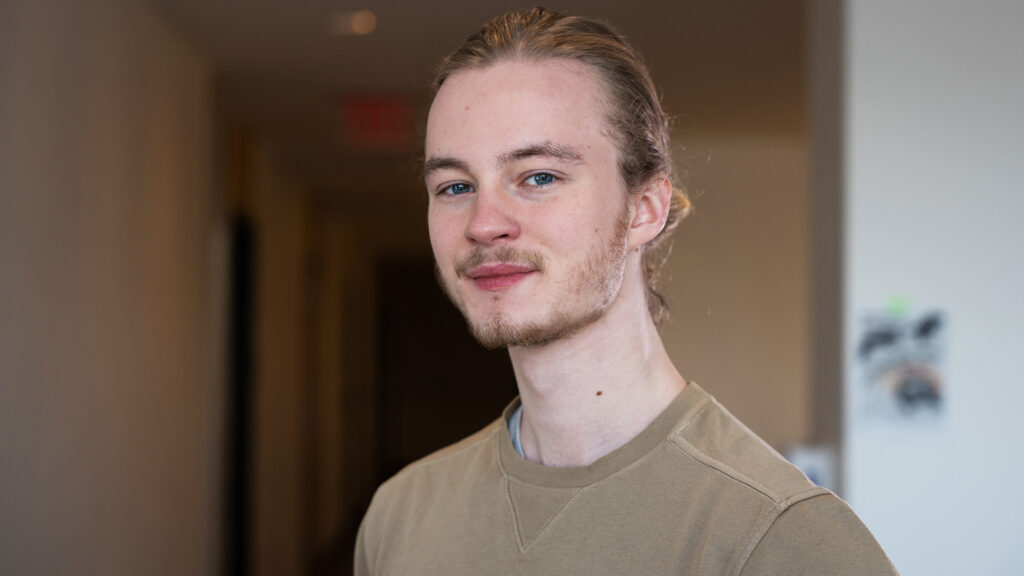
Student: Roan Floer-Martinez ʼ23
“Identifying Hydraulic Catchment Zones in the Highlands of Guatemala, with Community Cloud Forest Conservation (CCFC)”
Tell us about your project. I worked with CCFC to generate high-quality visualizations of health and population data, as well as improving their existing datasets. In addition, I collaborated with local students enrolled in CCFC’s programs to improve health surveys.
How has the Live It Fund helped you think differently about what is possible for yourself? I feel that a trip of this magnitude, including the independent and self-guided nature of the project, pushed me significantly “out of my comfort zone,” and encouraged me to learn new skills and be adaptable.
What skill have you most developed during your project? Courage: I trusted myself to travel solo, encountered a new organization in a new country, improved my Spanish immensely, and taught myself a new Geographic Information Systems (GIS) program.
How did your project change or grow? I started out expecting to focus more on physical geography. However, due to my personal skillset as well as personnel changes within the organization, I shifted focus to population and health geography.
What did you learn about yourself? I need to work on my ability to “go with the flow.” It took me several days of being in Guatemala to accept this mentality, but once I did I was much more adept at problem-solving for my project.
Anything else to share? To other candidates of the Live It Fund: Trust yourself! You are more capable and your project is cooler than you think it is! You will learn more than you thought possible.
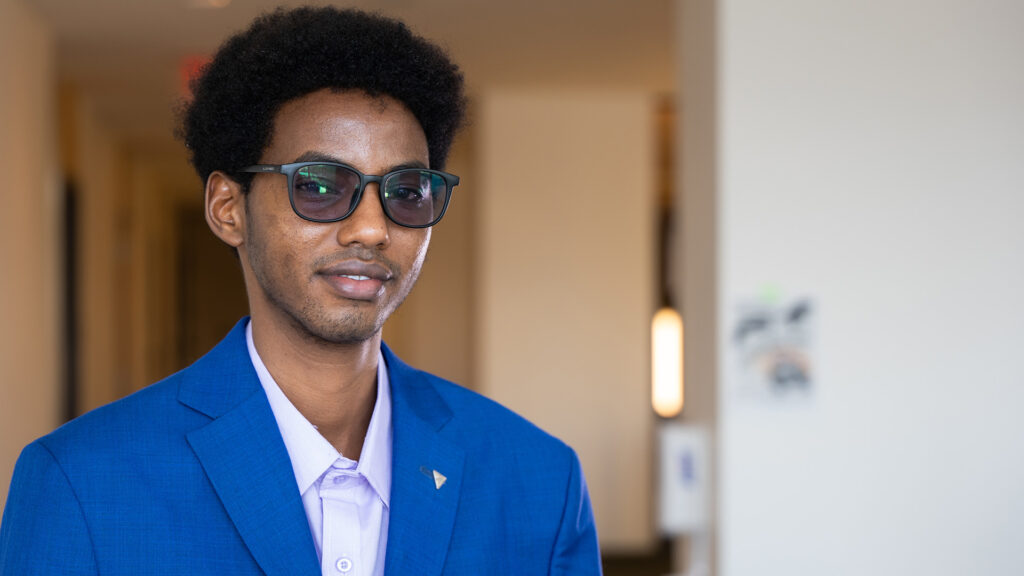
Student: Abdi Billie ʼ25
“Bridging the Gap”
Tell us about your project. Bridging the Gap aimed to create awareness about scholarship opportunities for a group of high school graduates in Wajir, a marginalized area in Kenya. Apart from conducting a one-week mentoring program for the students, I met with stakeholders of education, specifically the Wajir County Cabinet Secretary for the Ministry of Education, Hon. Ahmed Wardere. It was an honor for me to discuss with him a myriad of things concerning the youth in the area, such as increasing mentoring programs.
How has the Live It Fund helped you think differently about what is possible for yourself? The Live It Fund not only allowed me to experience what I can do for the community, but it also expanded my network by giving me the opportunity to interact with some of the policymakers in my community, something that wouldn’t otherwise be possible.
What skill have you most developed during your project? Curiosity and creativity allowed me to create my own community-based organization, and this allowed me to meet with Hon. Wardere by showcasing what I did. This enabled me to advocate for issues that I believe are important for the youth.
What did you learn about yourself? I was a little fearful of how my project would go, but I realized that once I laid my hands on it, everything took shape. The lesson is to just dare to begin it.
What’s next for you? This project fueled my interest in community empowerment activities; I would like to get involved in more through my newly founded community support organization, Bridging the Gap (a name I borrowed from my project).
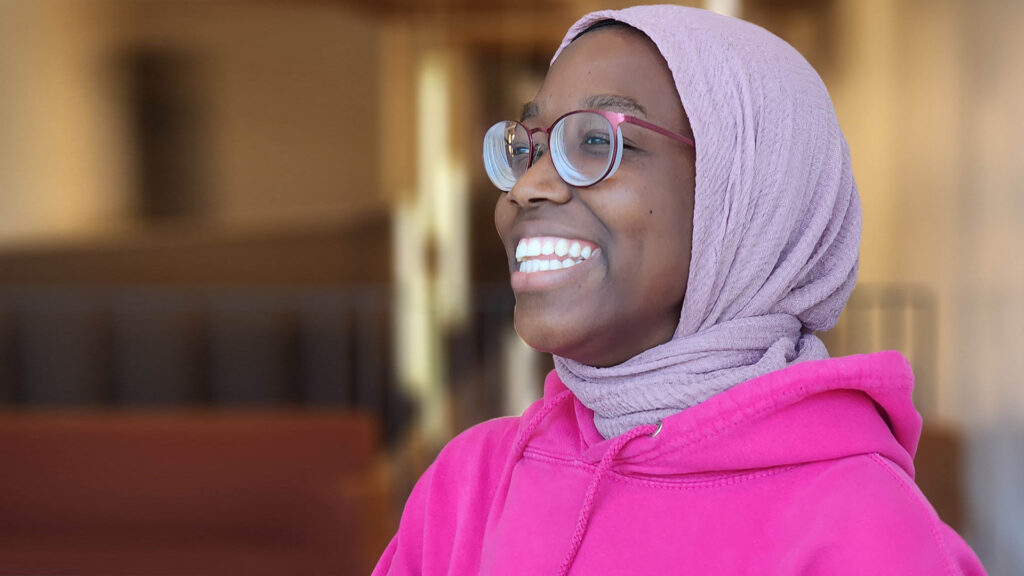
Student: Anna Sene ʼ24
“Xam Sa Bopp, Xam Sa Adduna”
Tell us about your project. Xam Sa Bopp Xam Sa Adduna (Know Yourself, Know the World) is a three-day series of workshops on global education and well-being in education. The twenty participants learned about and discussed global citizenship and the educational opportunities in Senegal and elsewhere. The group also did collaborative projects about the challenges facing education. Our last workshops focused on well-being, with tips and strategies to study smart, a slam therapy session, and lots of reflections.
What skill have you most developed during your project? Adaptability: As you do projects, you quickly realize not everything will fall into the boxes you hoped they would. I’ve had to change the time of some activities because I sensed the energy in the room going down. I learned to ask the students what they wanted to do/how they wanted to do it, and modify or switch activities based on that.
When you think back to your project, what are you personally most proud of? I am so proud when I think about the last day and the fact that the students were genuinely sad to leave, since they truly enjoyed our time together. Being able to connect with the participants during this project and learn with them is a huge win for me. I could go on and on because I am proud of so many things.
How did your project change or grow? At first, I did not think about inviting my friends to share their education journeys with the students. One to two days before the project, I realized it would be nice for the students to learn about possible opportunities depending on the track you choose after ninth grade. So my workshop ended up being more than just a presentation from me. The students connected with some of my friends studying in Senegal, Morocco, France, the U.S and in different fields. They learned from them and also were introduced to the idea of networking.
What have you learned about yourself, and how will that help you moving forward? I am really comfortable with things not working out the way I planned and adapting to the situation. I think this skill is so important because projects will always change and you will never be able to follow your original schedule. I learned that we will always have so many ideas and that unless we are courageous enough to start, we will never see our ideas come true.
Student: Tung Quang Nguyen ʼ23
“Người Việt”
Tell us about your project. “Người Việt” was intended to be a blog series to help youth in Vietnam understand and empathize with the story of Vietnamese people in the largest diaspora in the country’s history. The project produced seven blog posts, reaching more than 500,000 people and inspiring them to connect with humans more deeply.
How has the Live It Fund helped you think bigger about what is possible for yourself? The people I talked with and the opportunities that came during and after this project solidified my plan after graduation. This trip changed the trajectory of my life, as well as how I see the world. I’ve decided to go back to Vietnam and double down on my business for the next two years after graduation.
What skill did you most develop during your project? Adaptability. From the blog: “After an exhausting day, [my host and I] came home around 11 p.m. With a 7 a.m. flight to catch, I would usually go straight to bed, especially after a full day of socializing. But I decided to join my host to watch a documentary. What I learned was how to be a better couchsurfer—when to engage in conversations, when to engage in silence. Like anthropology, interviews are not the only nor the best way to understand a person. To truly understand a person, you’ve got to do what they do with them. You’ve got to let go of your usual routines and engage in theirs.”
When you think back to your project, what are you personally most proud of? The courage to pivot when I realized what I was doing wrong.
What have you learned about yourself, and how will that help you moving forward?
- I’m not as good at interviewing people as I thought.
- I enjoy cooking more than eating.
- I cannot compromise money or respect for the freedom and ownership to do what I really care about.
Student: Brennan Standel ʼ23
“The Fadan; A New African Story”
Tell us about your project. Fadan is a semi-cooperative area control and deck building game set in the mother continent. Players play as unique African civilizations that must lead their people to greatness. As they compete for resources and map positions, a shared enemy emerges from the horizon. How players lead, compete, and collaborate determines not just the fate of their people but of the continent.
Fadan is a game that shares the stories and histories of Africa in a new way. As a board game it decolonizes a traditionally white and colonial space. While educating existing community members, it also offers a door to new members from diverse African backgrounds. Fadan means “the fight” in Hausa, and I hope it plays a role in the larger fight for decolonization and recognition of African knowledge and history.
What skill did you most develop during your project? Adaptability. Being my own boss meant I had to make my own schedule and make my own plans. If something went wrong it was on me to figure it out. The Live it Fund gave me just enough support and independence to adapt and overcome challenges while still learning from the situation.
What was the best day you had working on your project? The first day of playtesting. I had a very basic setup, like a chalk board for a game board and sticky notes for cards. The game held together for about thirty minutes before falling apart. It then evolved into a brainstorming session where the chalkboard/game board became a collaborative space to jot down ideas and build it back together. It was really fun and really great to share African history and ideas and have collaborators help me translate that into game mechanics.
What’s next for you? I still plan on decolonizing and supporting Africa in the field of geography but in my free time I will continue working on this project. Eventually I would like to pitch it to a game publisher or put it on Kickstarter.
Students: Hongyi Liu ʼ24 and Yu Yan ʼ25
“Warm Blood, Cold Lead”
Tell us about your project. Warm Blood, Cold Lead is a data analysis project to help local children and address the problem of blood lead levels.
What skill did you most develop during your project?
Hongyi: Presenting technical details to non-technicians.
Yu: Courage. We hadn’t been to Duluth before, and there is not a lot of information online about lead contamination there. We knew that Minneapolis is an industrial center, so we wanted to know what the situation was in Duluth. But since we didn’t know much about Duluth, we needed the courage to go find out.
When you think back to your project, what are you personally most proud of?
Yu: Many people don’t know what lead is, or what it does to our bodies. I asked my friends and they had no idea about it. Through this project, more people are aware of the issue and know how to prevent it.
How did your project change or grow?
Yu: By things not going as smoothly as one might expect. For example, we wanted to collect water at Lake Superior and use the test kit to measure the lead content, but the results were not ideal.
Hongyi: We needed to study theoretically the most-susceptible groups: children, low-income families, minorities. This calls for metadata analysis, or data analysis on the data themselves.
What have you learned about yourself, and how will that help you moving forward?
Hongyi: I need to plan with empathy and awareness.
Yu: To not worry about what will happen in the future, because anything can happen. In the future, I will not worry about as many things before it starts, but be prepared to solve all problems.
Student: Tri Bui ʼ25
“Eco Smart Vietnam”
Tell us about your project. Eco Smart Vietnam is a youth organization that aims to raise young Vietnamese people’s awareness about eco-friendly products. The organization has thirty-eight members in all three Vietnamese regions, from North to South, in nearly ten cities. We have been operating for more than one and a half months, attracting more than 400+ followers on social media.
How has the Live It Fund helped you think differently about what is possible for yourself? The first time I started an organization was three years ago. Since I focused on studying IT and computer science, I lost some confidence in myself, and my leadership skills declined. Live It Fund has once again rekindled my leadership skills, and this is my fourth organization born with many improvements and development compared to previous ones.
What skill have you most developed during your project? Leadership. I am the president/CEO of Eco Smart Vietnam, which builds on the model of a social business and non-profit organization. I led ten department heads and twenty-seven members for a month and a half.
When you think back to your project, what are you personally most proud of? The little but significant impacts on environmental issues and eco-friendly products, from awareness to distributed products. Additionally, that the organization’s management system is disciplined, effective, and operates smoothly, laying a solid foundation for continual organization development.
What have you learned about yourself? That I could be a good (and hope to be great) leader. I have more courage, adaptability, and resilience than I thought.
March 6 2023
Back to top